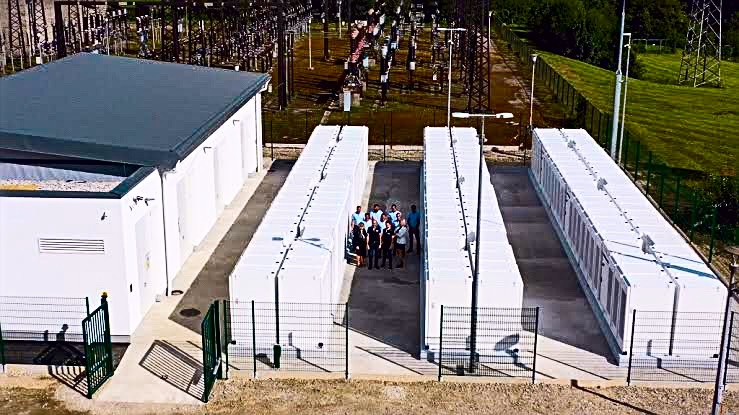South Africa is making significant progress in developing battery energy storage systems (BESS) that can support the integration of renewable energy into its power grid. The country’s Independent Power Producer Office (IPPO) is currently working on identifying substation sites for the upcoming third Battery Energy Storage Independent Power Producer Procurement Programme (BESIPPPP) round, while also moving forward with the second bid window (BW2) for 615 MW/2 460 MWh of BESS capacity across eight substation sites in the North West province.
The IPPO head Bernard Magoro announced these developments during a virtual bidders’ conference on January 17, 2024. He said that the IPPO aims to release the sites for the third round of BESIPPPP sooner rather than later and that the request for proposals (RFP) for BW3 could be issued before the end of March.
The BESIPPPP is part of South Africa’s efforts to diversify its energy mix and reduce its reliance on coal-fired power plants, which account for about 90% of its electricity generation. The country has set a target of achieving 40% renewable energy by 2030 and has already procured over 6 GW of wind and solar power through its Renewable Energy Independent Power Producer Procurement Programme (REIPPPP).
However, the intermittent nature of renewable energy poses challenges to grid stability and reliability, especially during peak demand periods or when weather conditions are unfavorable. This is where battery storage can play a crucial role, by storing excess renewable energy when it is abundant and releasing it when it is needed, as well as providing ancillary services such as frequency and voltage regulation, spinning reserve, and black start capability.
According to Magoro, the BESIPPPP is designed to address these challenges and create a market for battery storage in South Africa. The program follows a competitive bidding process, similar to the REIPPPP, and offers long-term power purchase agreements (PPAs) to the successful bidders. The PPAs are backed by the government and guaranteed by the National Treasury, providing certainty and security for the investors.
The IPPO launched the first round of BESIPPPP in 2023, and selected four preferred bidders in late November, with a combined capacity of 360 MW/1 440 MWh and a total investment value of R10 billion. The four projects are all located in the Northern Cape province and are expected to reach financial close by June 2024 and commercial operation by December 2025.
The second round of BESIPPPP, which was opened on December 14, 2023, is seeking 77-MW BESS at each of the eight transmission substations sites in the North West province, namely Mercury, Carmel, Hermes, Ngwedi, Midas, Marang, Bighorn and Ararat. The closing date for bid submissions is April 30, 2024.
Eskom, the state-owned power utility, has selected these sites based on a set of criteria that include the availability of capacity for discharging and recharging, the minimization of losses, the system strength, the existing storage concentration, the potential for renewable energy curtailment reduction, and the congestion relief for the main corridor into Gauteng.
The evaluation criteria for the bids are based on a 90-10 weighting, with 90 points for price and 10 points for the economic development components, such as local content, job creation, and black empowerment. The minimum South African ownership requirement is 49%, and the minimum availability of the BESS is 95% over 8,760 hours per contracted year.
Magoro said that the IPPO expects to announce the preferred bidders for BW2 by July 2024 and to reach financial close by December 2024. He also urged the prospective bidders to meet the January 31 deadline for the application for grid-connection cost estimate letters from Eskom, which require 90 days to process.
The BESIPPPP is expected to have a positive impact on the South African economy, by creating new opportunities for local manufacturers, suppliers, contractors, and service providers, as well as stimulating innovation and research in the battery storage sector. The program is also aligned with the country’s green recovery plan, which aims to boost economic growth and job creation while reducing greenhouse gas emissions and enhancing climate resilience.
South Africa is not alone in pursuing battery storage as a key enabler for renewable energy integration. According to a report by BloombergNEF, the global battery storage market is expected to grow from $5.4 billion in 2023 to $17.5 billion in 2028, driven by the falling costs of lithium-ion batteries, the increasing penetration of wind and solar power, and the rising demand for grid services. The report also forecasts that the global battery storage capacity will increase tenfold by 2030, reaching 741 GWh.
As one of the leading countries in Africa and the world in terms of renewable energy and battery storage development, South Africa has the potential to become a regional hub and a global player in this emerging industry. With its abundant natural resources, its strong policy support, and its growing expertise and experience, the country is well-positioned to harness the benefits of battery storage for its power system and the wider African continent.
Source: Engineering News



